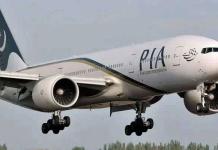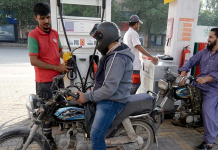ISLAMABAD, AUG 6 /DNA/ – The Islamabad Chamber of Commerce and Industry (ICCI) convened an interactive session ‘Dialogue on Climate Regulations by EU and their Impact on Exports’, attended by exporters in large numbers and key government officials. It was addressed by Escipion Joaquin Oliveira Gomez, Director International Trade Centre, Geneva, Robert Skidmore, Chief Sector & Enterprise Competitiveness International Trade Centre, Geneva, Atif Aziz, Joint Secretary EU Affairs, Ministry of Commerce, Ahsan Zafar Bakhtawari, President Islamabad Chamber of Commerce and Industry, former President ICCI and Secretary General United Business Group Zafar Bakhtawari, Mohammad Shoaib Advisor National Trade Centre, Adnan Yousuf Lodhi, Policy Advisor and other.
In his opening remarks Ahsan Zafar Bakhtawari, President ICCI highlighted the importance of understanding and adapting these new regulations. He emphasized that Pakistani businesses need to proactively align with EU’s environmental standards to maintain their market access and competitiveness. He said that our exports to the EU are crucial therefore it is imperative that we should not only be aware of these changes but also ready to comply with these regulations.
Ahsan Zafar Bakhtawari went on to say that Pakistan’s carbon emissions are significantly lower as compared to the neighboring countries. Its share of global greenhouse gas emissions is only 0.93% but is one of the worst sufferers of the impacts, therefore, it definitely deserves the benefit of the situation. He, by mentioning the highest power tariffs in the country, said that Pakistani exporters are already passing through the difficult times and implementation on Carbon Border Adjustment Mechanism (CBAM) will surely add to their distress, he pleaded for gradual and phase-wise implementation of the mechanism.
He also urged the International Trade Centre delegation to visit Karachi, Lahore, Faisalabad and Sialkot Chambers of Commerce and Industry to get firsthand knowledge of the exporters and industrialists’ ambitions to enhance their exports to the EU and the difficulties they are confronting in the matter.
On his part, Zafar Bakhtawari by terming the session as very useful for the entire business fraternity underlined the need for some concessions for the developing and least developed countries vis-à-vis the implementation of the mechanism to enable the entrepreneurs to adopt the same conveniently.
Robert Skidmore moderated the session and highlighted the support available to Pakistani businesses to help them transition to more sustainable practices. He outlined the Growth for Rural Advancement and Sustainable Progress (GRASP) project of ITC that shows how this project is supporting SMEs through capacity building and policy initiatives.
Escipion Oliveira thanked the participants and provided an overview of the new EU regulations, focusing on how they will impact Pakistani exports. He stressed the importance of sustainability in global trade and how the EU’s regulations are designed to encourage more sustainable production practices worldwide.
The Ministry of Commerce’s representative, Atif Aziz, addressed the government’s role in facilitating this transition. He mentioned that the Ministry is actively working on developing policies and frameworks to help Pakistani exporters comply with international environmental standards.
The discussion focused on the EU’s stringent new trade regulations, which are part of the European Green Deal, a comprehensive policy initiative aimed at making Europe the first climate-neutral continent by 2050.
Mr. Adnan Lodhi from ITC briefed the participants that as a major trading partner, Pakistan’s exports, especially in sectors like textiles, agriculture, and manufacturing are expected to be directly affected by these changes.
Former President ICCI Mian Shaukat Masood also highlighted the difficulties facing the Pakistani exporters by suggesting some remedial measures.
The dialogue underscored the urgency of adapting to the EU’s new trade regulations and highlighted the critical role of awareness and collaboration between Pakistani businesses, the government, and international partners like the ITC. The discussions paved the way for future cooperation and set the stage for a more sustainable and resilient trade relationship between Pakistan and the European Union.
Those present among other also include Abdur Rehman Siddiqui, Rizwan Chheena, Maqsood Tabish, Malik Shabbir Awan, Mohsin Khalid Malik, Nasir Chaudhry, Naima Ansari, Saddaf Abbasi, and Chaudhry Waseem.

















